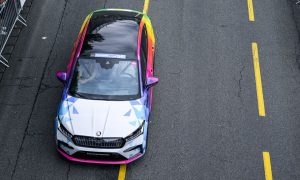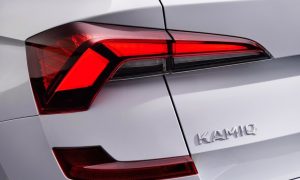
ŠKODA is introducing innovative new power hubs across its retailer network – powered by second-life electric car batteries. The hubs store sustainably generated electricity in end-of-life lithium-ion batteries that will eventually be taken from the brand’s electric models. The system, which has been developed in partnership with the Czech technology company IBG Česko, can be used to power retailer and workshop buildings and deliver rapid charging for customer cars.
Following a successful pilot project in Prague, the innovative energy storage hubs are now available to selected ŠKODA retailers in mainland Europe. So far, 160 pre-orders have been received from dealers in the Czech Republic, Germany, the Netherlands and Slovakia, with the possibility of extending to the UK in the future.
The power hubs can hold up to 20 batteries from ŠKODA plug-in hybrid models (Superb iV and Octavia iV), each with 13 kWh, or five 82 kWh batteries from the fully-electric Enyaq iV. The system has a total capacity of up to 328 kWh, which can be used to supply fast-charging stations with a transmission power of up to 150 kW.
The system can also store any surplus green electricity that is generated by ŠKODA retailers’ photovoltaic systems, for example. This electricity can then be used at any time with full transmission power, regardless of the weather or the current load on the local power grid. In addition, the dealers can draw on the electricity generated in-house to light their showroom or workshop or to run the air conditioning. The system can be scaled up or down, and the batteries can be exchanged in a few simple steps if required. ŠKODA has the potential to build more than 4,000 units in the coming years.
As all fully-electric and plug-in hybrid ŠKODA models come with an eight year / 100,000 mile warranty on the lithium-ion battery packs, the first generation of power hubs have been fitted out with battery packs from test and pre-production vehicles.
ŠKODA estimates that the system potentially extends the useful life of the batteries by up to 15 years, significantly improving their carbon footprint. At the end of this second life cycle, ŠKODA will recycle the cells in a controlled process. The recovered raw materials are then used to produce new batteries.



